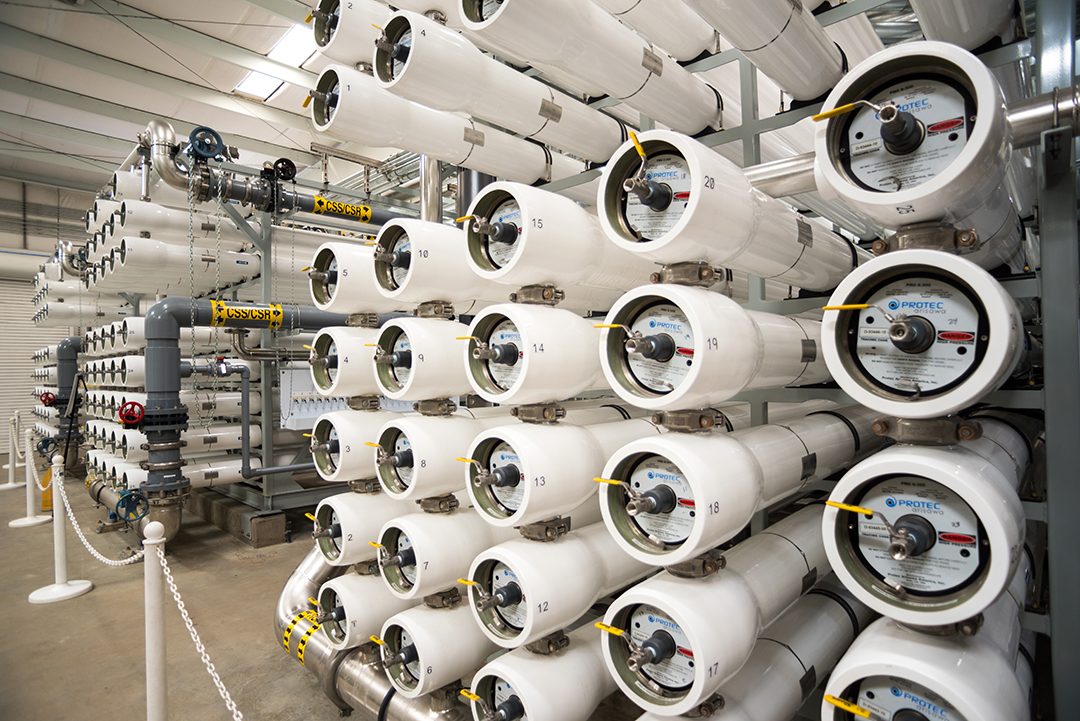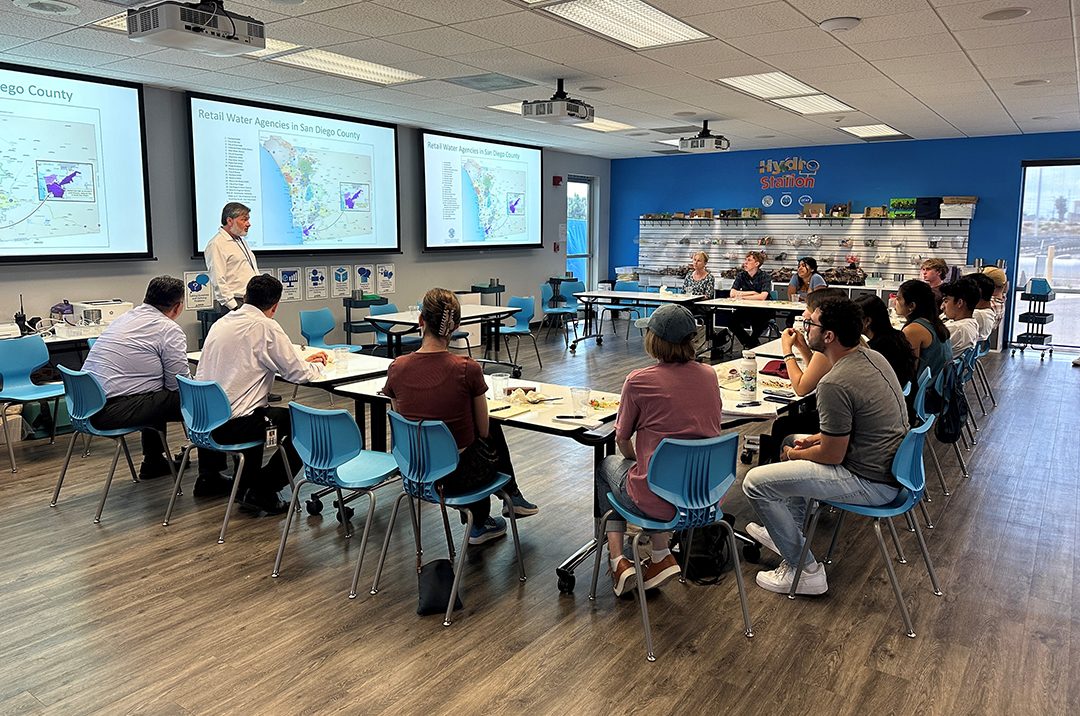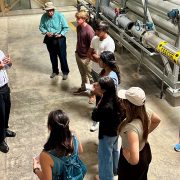Sweetwater Authority (Authority) recently welcomed fifteen students and faculty from Stanford University’s The Bill Lane Center for the American West. Group members are part of the university’s multidisciplinary course of study on “Coastal Resilience: Problems and Solutions to Extreme Weather Challenges on the West Coast.”
The Bill Lane Center for the American West is dedicated to advancing scholarly and public understanding of the past, present, and future of western North America. The Center supports research, teaching, and reporting about Western land and life in the United States.

The Stanford University group visited the Robert A. Perdue Water Treatment Plant and Sweetwater Reservoir, as well as the Richard A. Reynolds Groundwater Desalination Facility in Chula Vista. Photo: Sweetwater Authority
The students and faculty first toured the Robert A. Perdue Water Treatment Plant and Sweetwater Reservoir, where they learned how the Authority secures and treats local water, maintains a historic dam, and manages watershed activities for the beneficial use of agency operations and the protection of environmental resources.
The group then visited the Richard A. Reynolds Groundwater Desalination Facility in Chula Vista. There, the students and Authority representatives discussed challenges facing groundwater supplies due to climate change before touring the award-winning facility.
Collaboration Addresses Challenges of Climate Change

“It was our honor to host the Stanford group and engage in these important discussions with the next generation of leaders,” said Board Chair Paulina Martinez-Perez. Photo: Sweetwater Authority
“The challenges presented by climate change as it relates to providing a sustainable and drought-proof water supply are great, and we need the brightest minds working to ensure long-term resilience for the western region,” said Authority Board Chair Paulina Martinez-Perez.
In its vision to become a leader in sustainability and the fight against climate change, the Authority’s Governing Board sets objectives within the agency’s Strategic Plan to work toward achieving carbon neutrality.
Current fiscal year objectives include implementing a Green Fleet Plan, installing EV stations at its facilities, and exploring green energy solutions like a proposed floating solar project at Sweetwater Reservoir to reduce costs and offset carbon generated as part of water agency operations. For more information, visit www.sweetwater.org/workplan.





